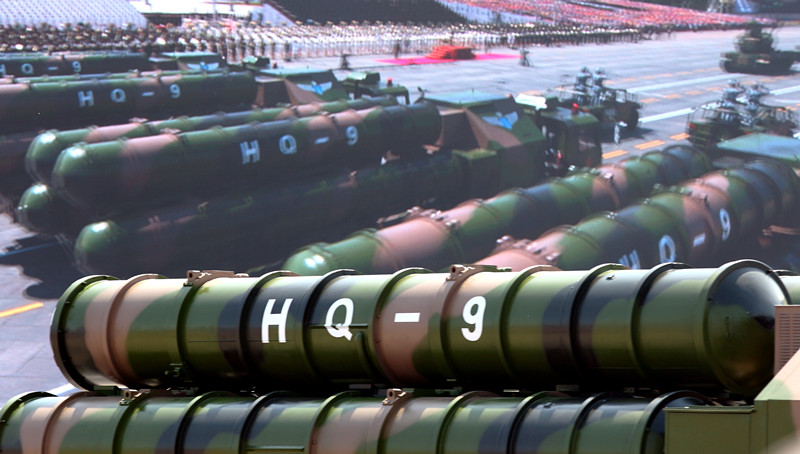
China has become a world leader in air-defense technologies thanks to the hard work and dedication of researchers at China Aerospace Science and Industry Corp's Second Academy, the country's major developer of air-defense weapons systems.
Researchers from the academy's Zhang Yiqun Laboratory have been playing a vital role in the development of China's new air-defense missile system by designing its control systems - the "brain" of any missile.
Compared with previous generations of air-defense missiles, the new-generation missile system will have a wider range of targets and be much more technologically sophisticated, taking China into the ranks of just a handful of nations capable of designing and producing such a system.
The cutting-edge missile's control systems need to be extremely efficient and accurate, said Wang Mengyi, deputy head of the Second Academy's General Design Department and former leader of the laboratory.
"Metaphorically put, the mission of these control systems is to guide a needle to fly 1,000 kilometers to pierce the eye of another needle," he said. "For researchers from Zhang Yiqun Laboratory, their mission is to turn this seemingly impossible task into reality."
Wang said control systems are mainly tasked with working out a missile's best trajectory and making sure it can hit its target.
The successful development of China's new air-defense missile system would be unachievable if researchers at the laboratory had failed to design world-class control systems, he said, noting that they adopted new design methods that have reduced design time tremendously and improved missile performance.
Wang Xiaodong, a laboratory researcher, said members of the laboratory spent numerous days and nights improving the accuracy of control systems and optimizing the algorithms that are central to them.
"For example, we worked 10 consecutive days and slept little each day to detect and resolve one extremely rare abnormality because all of us are aware that our nation's air-defense networks can only be reliable if we are meticulous and responsible toward our work," he said.
The laboratory, named after Zhang Yiqun, a top researcher at the academy and former head of the laboratory, has been granted 11 National Science and Technology Advancement Awards and 28 National Defense Science and Technology Progress Awards due to its extensive contribution to China's air-defense networks. It has also registered more than 130 defense technology patents.
In the laboratory, members of the Communist Party of China play a vanguard, exemplary role, leaders of the laboratory said. They always take the lead in innovating, carry out their assignments carefully, with scrupulous attention to detail, and also display an inspirational level of diligence and devotion toward their work.









